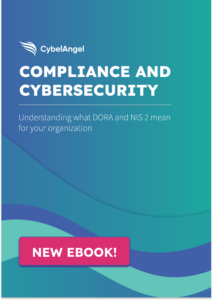Top 10 Cybersecurity Blog Posts for 2020

Table of contents
What was the top cybersecurity news for 2020?
At CybelAngel, we can sum it up in three words — Increased Attack Surface. This year, our most popular cybersecurity blog posts reflect the increase in attack surface — and successful attacks — that companies experienced in 2020. How do we know this? At CybelAngel, we’re on the cutting edge of threat detection because our analysts and algorithms work 24 hours a day, 365 days a year, to detect threats to our client’s data. What led to increased opportunities for cyber attack? At many companies, employees working from home accelerated the need for:
- Cloud Migration
- Digital Transformation
These business changes translate to sharing data with third parties and giving access to users via non-secure devices and networks. The result of these actions is increased opportunity for cyber attack. During the push to the cloud and digital transformation, many businesses fell behind on security in 2020, resulting in an alarming trend in ransomware. Companies are learning the costly lesson that every time someone connects a device to access data, a new opportunity is presented for cyber attack. Many companies miss the increased risk for cyber attack that is presented by hosting their sensitive data on third-party servers. One misconfiguration on AWS S3 or one successful exploit in social engineering can expose enough sensitive data to cause millions of dollars in damages for a business. See our top 10 cybersecurity blog posts for 2020 — and gain insight into the top threats to data and preventive measures that you can take to safeguard your data in the new year.
Top 10 cybersecurity blog posts for 2020
In our tenth most popular post, we share insight gained at RSA 2020 by our Principal Analyst, Nisha Kappillil. Motivated by conversations with other InfoSec professionals at RSA 2020, Nisha shares her insight for how to transition your employees from cybersecurity risks to cybersecurity resources. Our ninth most popular post discusses how to evaluate the security of your cloud platform. If you’re considering migrating your enterprise and development IT to a cloud platform, or have already migrated your business computing and DevOps to PaaS (platform-as-a-service), cyber security should be your top concern. The key is a layered approach. In the eighth most popular blog post, our analyst examines the cyber attack known as “Meow” has been targeting unsecured databases, erasing all their data. This new threat highlights a vulnerability in the security configuration of databases, which allows attackers to exploit that vulnerability and launch large-scale campaigns of data compromise. Our seventh most popular blog post examines digital signatures as the cybersecurity vulnerability you need to stop ignoring. Digital signatures introduce several security vulnerabilities and not all certificates can be trusted. It is possible for people to open files that are signed with untrusted certificates that could infect their systems. Our sixth most popular post shares that in a year when 75% of workers in North America shifted to working from home, now is exactly the wrong time to disregard your basic cyber hygiene. Todd Carroll, our VP of Cyber Operations, reflects on his time in the FBI when he urged colleagues to bet on education, training and policy enforcement. Our fifth most popular post was the Cyber Kill Chain Model for categorizing seven stages of targeted cyber attacks. The Cyber Kill Chain model addresses Advanced Persistent Threat (APT) intrusions. APT actors often remain undetected in their target’s network for over two months, which gives them plenty of time to accomplish their objectives. In the fourth most popular blog post, our analysts discuss regularly detecting data leaks on GitHub. When users inadvertently publish sensitive data to this site, they may delete that data; but GitHub is designed to keep track of historical modifications, so the sensitive data remains publicly accessible. See how to protect your enterprise from data leaks on GitHub. Third in popularity, this blog post shares how CybelAngel discovered over 45 million medical images left openly accessible online. Gaps in security such as this present a huge risk, both for individuals and healthcare institutions. The fact that we did not use any hacking tools highlights the ease with which we discovered and accessed these files. Our second most popular blog post examines SCADA system vulnerability and the threat to global infrastructure. The increase of cyber attacks on Industrial Control Systems is a warning to enterprises across the globe regarding the security of SCADA systems and the consequences of a major breach. Our most popular post examined the Ragnar Locker ransomware targeting of CWT, the fifth largest travel management company. Ragnar Locker stole 2 terabytes of data, allegedly including thousands of global executives’ credentials. The ransomware criminals demanded a ransom of $10 million dollars. See what happened next.
Preventive measures for data breach
In the new year, migration to cloud and digital transformation are expected to continue as major initiatives at many businesses. If you suspect data leaks following changes in your business, take preventive measures before you experience a costly data breach. Make that leap to the cloud successfully — without increasing risk significantly — by using an enterprise-grade solution for digital risk protection. To decrease risk even further, ask for our Take-Down service, which manages everything from leak detection to take-down of your sensitive data. Because when you operate in the cloud, data leaks are inevitable; but damage is optional.
